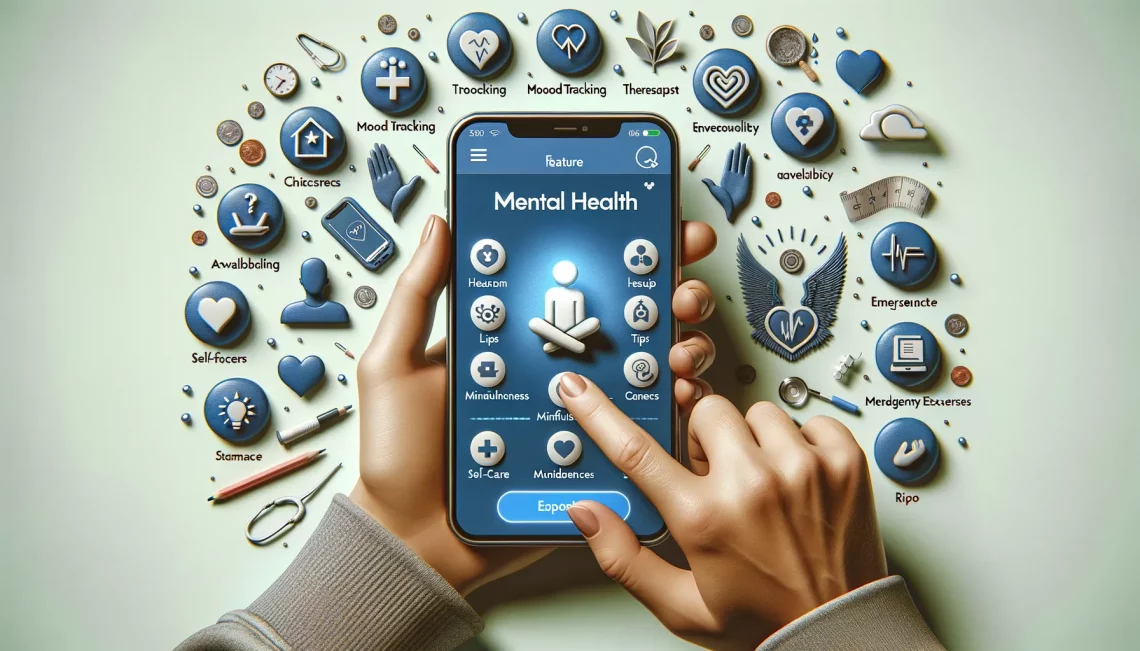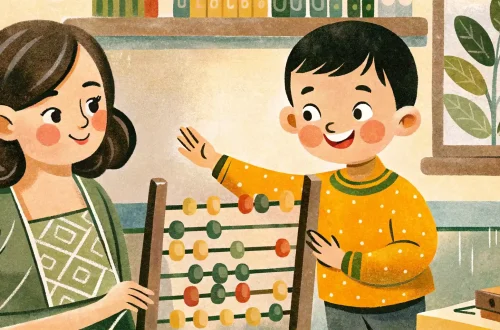Why Mental Health Apps Are Essential in 2024
The Rise of Pocket-Sized Support Systems
Picture this: it’s late at night, your heart is racing, and your thoughts are swirling faster than a storm. Who do you turn to? Enter mental health apps—your personal coach, confidant, and therapist conveniently housed in your pocket. In 2024, as life becomes more high-speed and unpredictable, these digital lifelines are nothing short of essential.
Why? Because mental health struggles don’t follow office hours. Whether it’s a quick breathing exercise in the middle of a tense workplace meeting or journaling your feelings after a heated argument, these tools provide immediate, 24/7 access to relief. Apps like Calm, BetterHelp, or Headspace are reshaping how we care for our mental health—not as an afterthought but as a daily necessity.
- Instant accessibility: No need for appointments or waiting rooms. Your help is just a tap away.
- Personalized solutions: Tailored programs for anxiety, depression, focus, or even insomnia.
- Affordability: Many apps are free or cost far less than traditional therapy sessions.
These aren’t just apps—they’re companions that listen, guide, and empower. In this era of screens and speed, they’ve become the bridge between chaos and calm.
Key Features to Look for in a Mental Health App
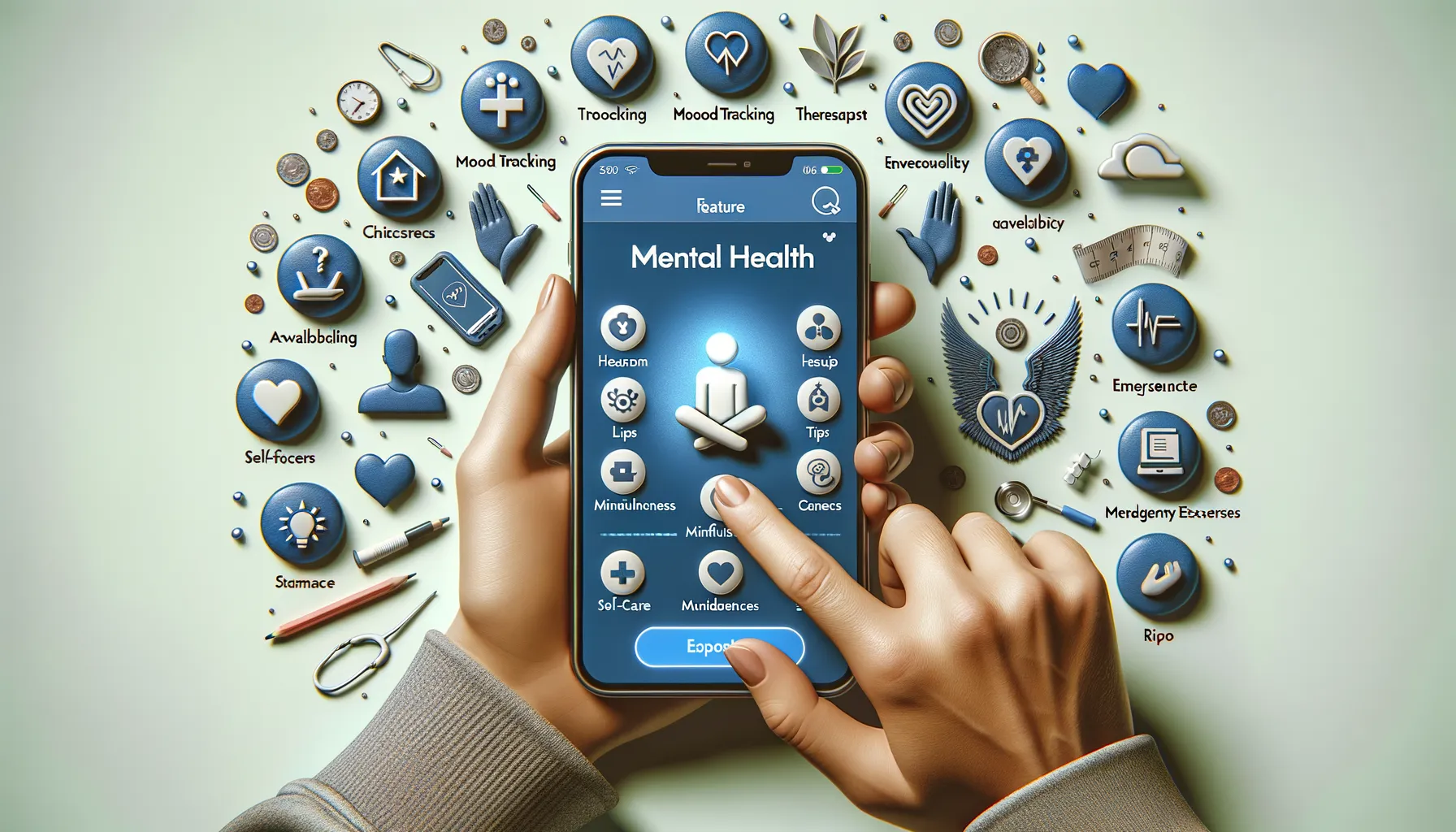
Finding Your Perfect Mental Health Ally
Imagine this: a mental health app that feels like your trusted friend, ready to listen at midnight or celebrate your small victories during the day. The key to finding that perfect fit is looking for features that not only support you but also truly understand your unique needs.
What should you prioritize? Here’s a quick checklist:
- Personalization: Does it adapt to your mood swings, goals, and preferences? Apps like this feel like they’re talking to you, not at you.
- Therapist-backed Tools: Guided meditations, cognitive behavioral therapy (CBT)-based exercises, or breathing techniques crafted by actual professionals.
- Real-Time Support: Whether it’s a chatbot to vent to or emergency hotline integration, real help should never be more than a tap away.
The Little Things That Make a Big Difference
Let’s talk connection. A great app often fosters community too, with forums or peer support groups where you can say, “Me too,” and actually feel heard. And don’t overlook ease of use—if navigating the app feels harder than calming your mind, that’s a red flag!
For example, one standout app might gently remind you to hydrate or step outside after a long day indoors. These small nudges are like having a caring coach cheering from your pocket.
Top Mobile Apps for Mental Health and Wellbeing in 2024
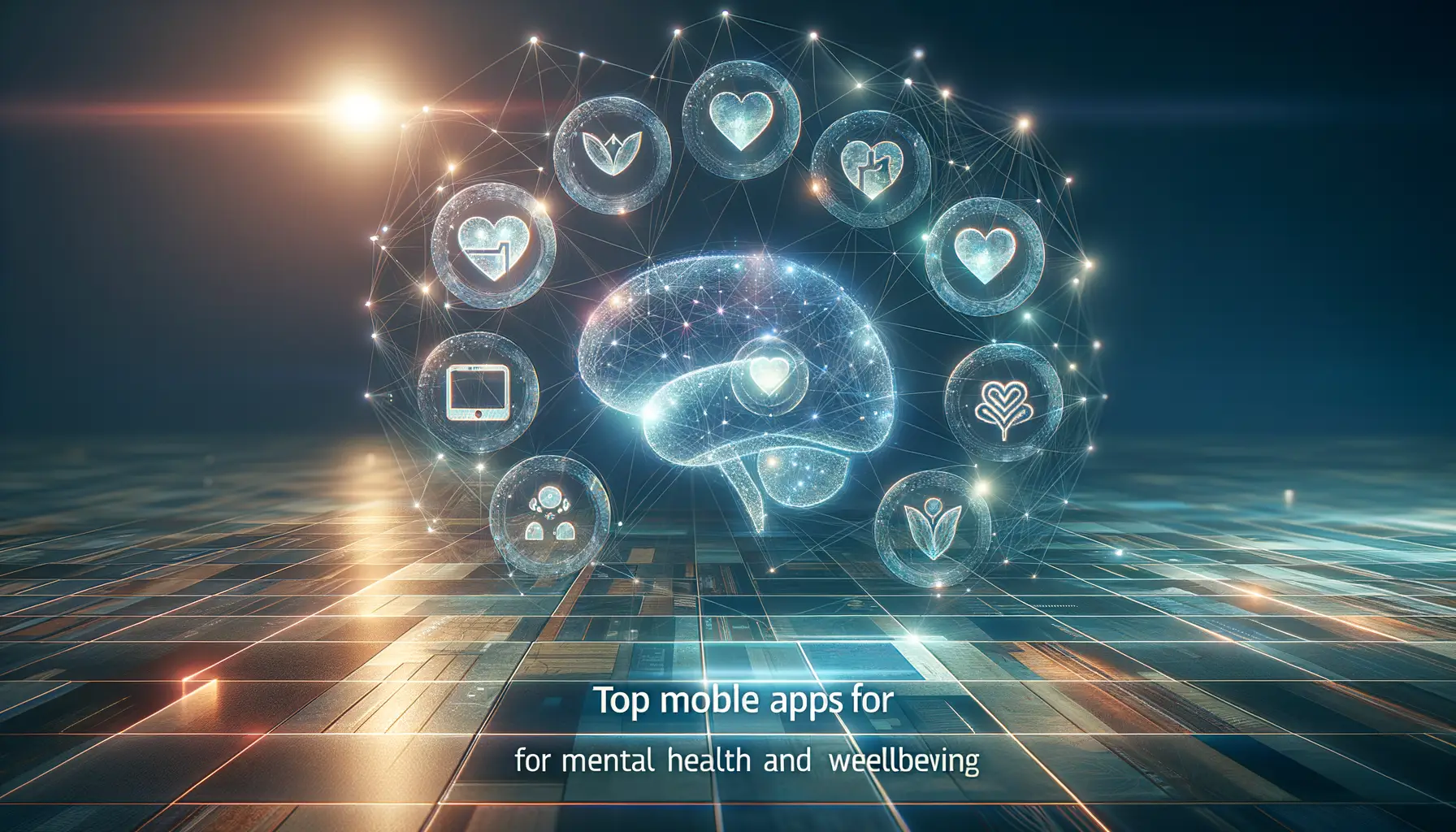
The Apps Turning Your Smartphone into a Self-Care Haven
Feeling overwhelmed? Stressed out from the relentless hustle of modern life? You’re not alone—2024 is shaping up to be another whirlwind year. But guess what? Help is just a tap away. There’s a booming world of mobile apps designed to become your personal pocket therapists, mindfulness coaches, and wellness gurus—and they’re surprisingly good at it!
From calming anxiety spirals to tracking mood shifts as accurately as a smartwatch tracks steps, these apps prove that caring for your mental health doesn’t have to feel like a chore. Whether you’re a meditation novice or someone looking for structured therapy tools, there’s something here for you.
- Headspace: The OG of guided meditation apps. Picture soothing voices, whimsical animations, and bite-sized sessions that fit neatly into any schedule.
- BetterHelp: Feeling chatty? This app connects you with licensed professionals for virtual therapy without the awkward waiting room vibes.
- Woebot: A chatbot with personality! Woebot dishes out CBT-based strategies, pep talks, and even the occasional bad joke when you need it most.
Behind each of these apps is a simple truth: mental health care shouldn’t just be accessible—it should be empowering, tailored, and dare I say it, even fun.
Comparison of the Best Mental Health Apps
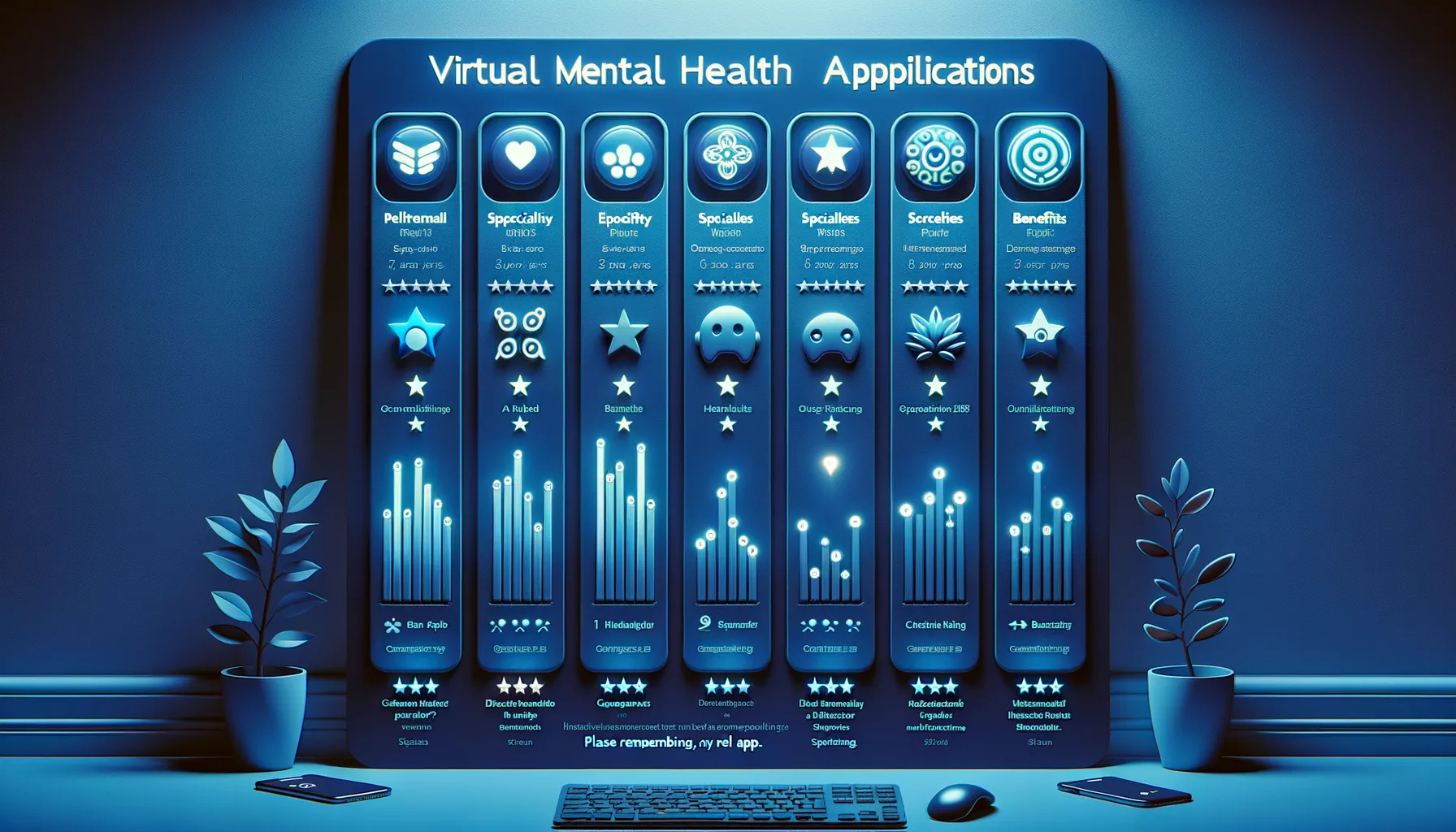
How These Apps Bring Calm to Chaos
Imagine holding a tiny lifeline in your pocket, ready to be your guide during life’s emotional thunderstorms. That’s the magic of mental health apps. But not all lifelines are created equal. Let’s dive into what makes the best ones so special by looking at some standout contenders.
First up is BetterHelp, the heavyweight champion of therapy apps. It connects you with licensed therapists for video or text-based sessions. Imagine venting about that impossible work deadline while sipping tea on your couch—yes, it’s that convenient.
On the other hand, there’s Calm, your personal zen coach. Struggling to sleep? Its dreamy bedtime stories read by silky voices (think Matthew McConaughey) will lull you into dreamland. Inhale, exhale—it also masters guided meditations.
For DIY mental fitness, meet Headspace. It’s not just an app; it’s like having a wise monk whispering life advice into your ear. Daily mindfulness tips and animations make resilience feel attainable.
- BetterHelp: Best for therapy-on-the-go.
- Calm: Perfect for stress relief and better sleep.
- Headspace: A gentle nudge toward daily mindfulness.
Each app brings its own magic, but the real winner? It’s the one that feels like *your* personal cheerleader.
Tips for Maximizing Benefits from Mental Health Apps
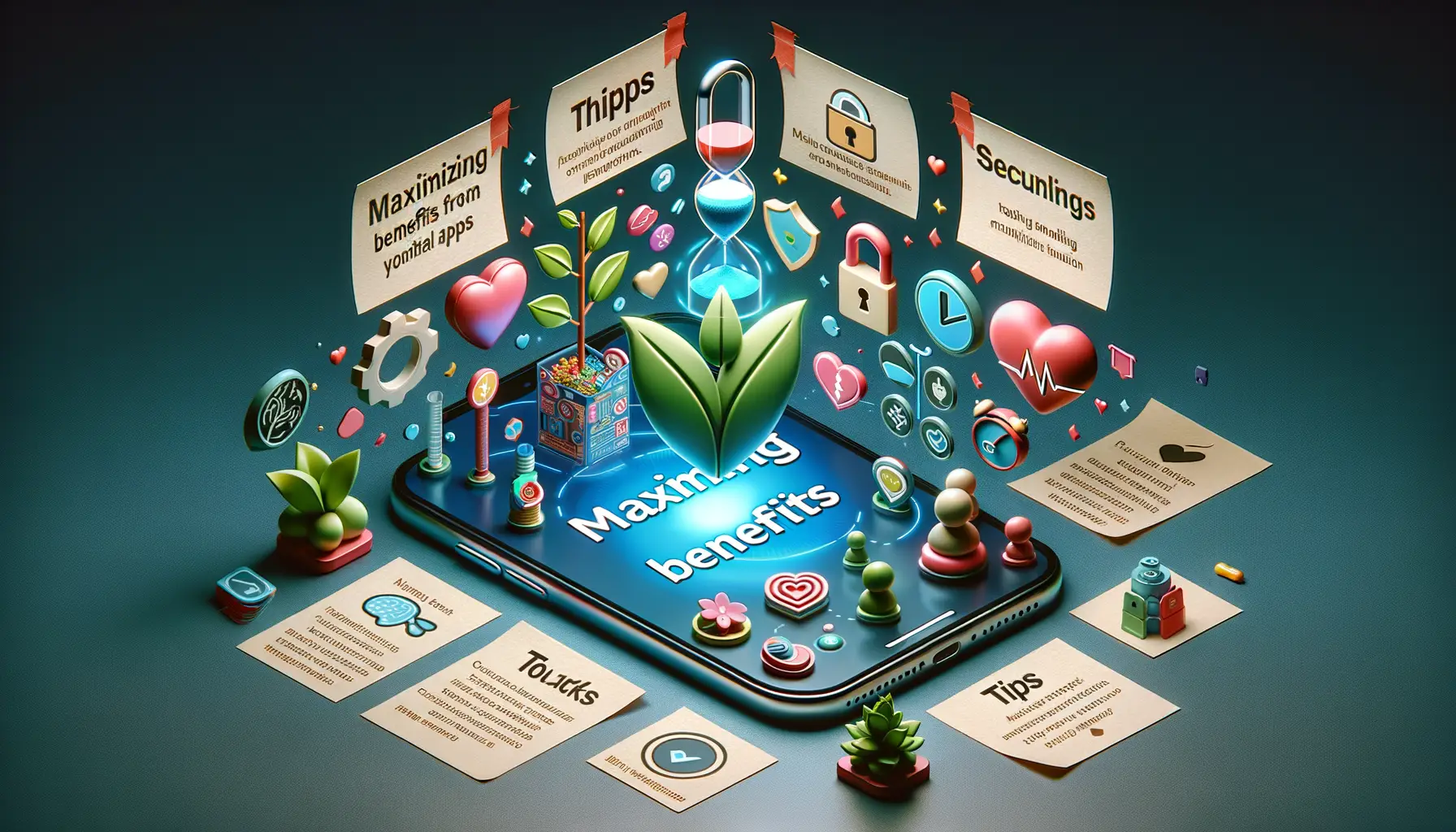
Find Your Rhythm with Consistent App Use
Let’s be real—just downloading a mental health app won’t magically transform your life. It’s like buying a gym membership and never leaving the couch! To maximize your benefits, commit to a regular schedule. Whether it’s journaling every morning or winding down with meditation before bed, find what fits your lifestyle. Set reminders if you tend to forget—it’s okay, we all do! And don’t feel guilty if you miss a day—progress, not perfection, is the goal.
Dive Into Features You Didn’t Know You Needed
Mental health apps are like treasure chests waiting to be unlocked, filled with surprises you didn’t know would resonate. Have you explored those guided breathing exercises? Or tried the mood tracker hidden in the settings? Many people rave about their favorite app only to discover later there’s more gold in there.
Here are some ideas to start exploring:
- Join peer communities: Many apps connect you with people who get what you’re going through.
- Track your growth: Look back to see how far you’ve come—a feel-good moment guaranteed!
Experiment boldly. The more you engage, the better these tools can serve you.

